Are you tired of stepping on an outdated tub? Are you dreaming of stepping into a customized shower? Well, a tub-to-shower would be a perfect solution. Tub-to Shower conversion refers to remodeling or giving your bathroom a fresh look featuring a shower. Unlike traditional conversions, tub-to-shower conversion is simple, cost-effective, and takes a short time. There are several ways of converting your tub into a shower. But, the cost of all these methods varies. The total cost of tub-to-shower conversion ranges from $1,200 to $8,500. The cost depends on price factors like size, features, and materials. Also, there are diverse types of showers, and their installation cost varies. This article will discuss various factors to consider when remodeling your bathroom.
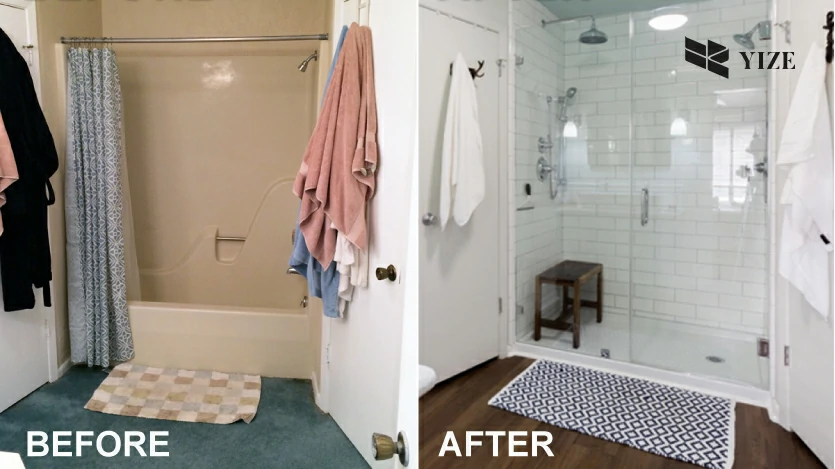
Tub-to-Shower Conversion Cost By Type
There are several ways of converting your outdated tub into a shower. The cost of conversion varies depending on the type of shower you want. Some showers have more luxurious features, causing higher installation and customization costs. Thus, one of the determinants of the conversion cost is the type of shower. Let’s discuss some of the shower types that accommodate tub-to-shower conversions.
Convert a Tub into a Walk-In Shower
The walk-in shower is growing in popularity among many homeowners. Yet, it is one of the most luxurious and expensive options, and many go for it. These types of bathrooms are larger and more luxurious than other showers. It has more features that make it accessible for disabled people. For instance, it eliminates spilling out of water.
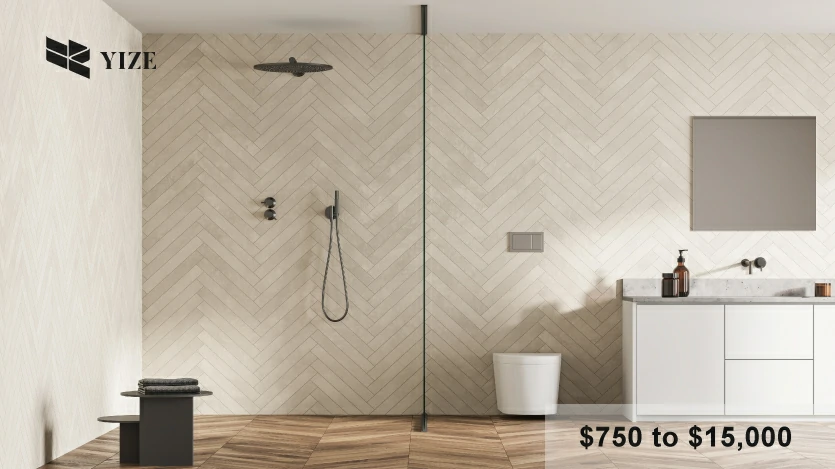
Thus, converting a tub into a walk-in shower would range from $750 to $15,000. The determinant factors of the cost include the shower size, the material style used, and the type of door installed. You will have to pay more to convert your tub into a prefabricated walk-in shower. The prices, in this case, range from $1,000 to $15,000.
Convert a Tub into a Shower Stall
A shower stall is the other type you may prefer. Replacing a tub with a Shower stall costs $1,000 to $8,000, depending on the material, size, and shape. The primary determinant of the cost of the Shower stall is the shape. A small and rectangular structure usually measures 60″ by 30″. Below are the cost ranges depending on the shapes of the shower stall.
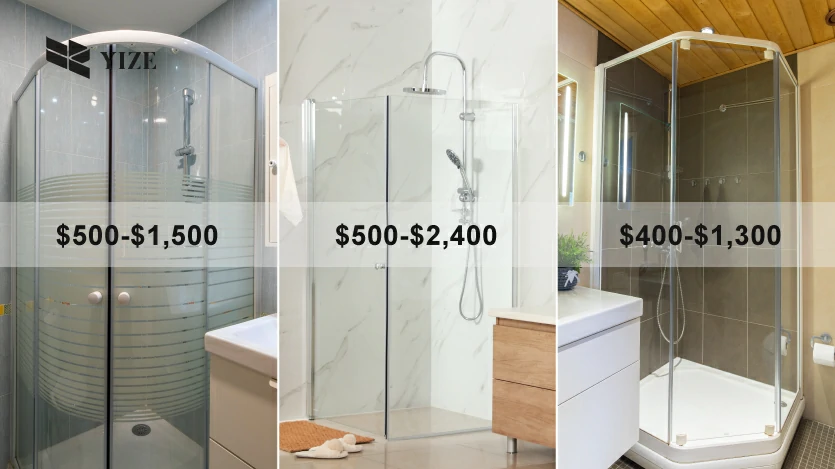
| Shower Stall Shape | Cost Ranges |
| Rounded Shower Stall | $500 – $1,500 |
| Rectangular Shower Stall | $500 – $2,400 |
| Neo-Angle Shower Stall | $400 – $1,300 |
| Square Corner Shower Stall | $300 – $1,300 |
| Barrier-free Shower stall | $2,000 -$4,500 |
Tub-to-Shower Conversion Cost Breakdown
Much of the cost involved in the conversion comes down to removing the old tub and the plumbing changes. All these changes help to accommodate the new shower. Breaking down expenses will estimate the total cost needed in the conversion process. The cost breakdown process is generally categorized into labor and materials. Below are some of the cost breakdowns involved in the tub-to-shower conversion.
Tub Removal
To get started, you need to remove the old tub and get the walls and floor ready for a new shower. The process includes cleaning, removing, disposing of, and repairing damaged walls and floors. Its cost ranges from $300 to $2,000, depending on the tub’s condition. The cost may increase for heavier tubs requiring heavy machines to haul them. Finally, you may incur an extra $50 to $150 to haul away the debris left behind during the tub removal.

Modification and Repair costs
After removing the old tub, you need to prepare a new shower. The preparation involves changing layouts, adding new features, and completing repairs. You need to hire a plumber to do all these tasks, and the cost depends on the professional level of the plumber you choose. In addition, the extent of work is directly proportional to the total cost. Most licensed plumbers charge up to $100 per hour.
When installing complex showers, you may need extensive plumbing and more pipework. This increases the total cost needed to repair the old bathroom. Depending on your shower setup, you may need to change the piping style to fit your new layout. Other repairs likely to occur include tiles, wall patching, and sealing water damages. Thus, the entire modification process can cost about $350 to $2,500.
Shower’s Price
The cost of the shower varies with the type of shower you want to install. Regular and manufactured showers cost less than customized showers with luxurious features. Thus, a shower with more complex features will likely cost more than a simple shower. Also, installing more features to your shower, like a steam shower, can add $1,500 to the price tag of the shower.
Shower’s Door
Most of the showers in the market do not come with a door. That means you must budget for the door as part of the cost. The shower doors’ price varies depending on the size and material. Plan to spend about $400 to $1,200 for the door. If you choose the glass door, expect to pay less than when you choose a door made of premium material.
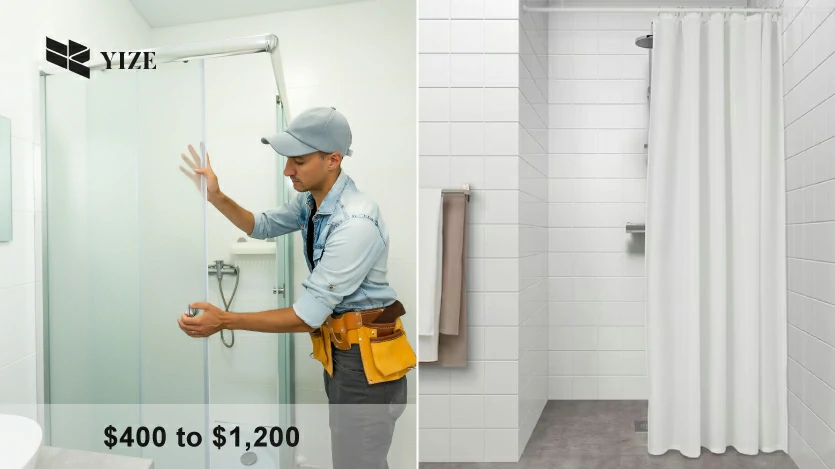
Or, you can forgo the shower door and use the curtain. But, you must account for curtain mildew if you use the shower curtain. Another factor that may affect your choice is the size of the bathroom. Some bathrooms are too small, so the shower curtain is the only perfect door.
Shower Accessories
Besides the shower, you need other accessories used in the shower. These shower accessories include water softeners, soaps, sprays, towels, shower shelves, and customized drains. All these accessories are likely to add up to $1,000. The price depends on the shower you have installed.
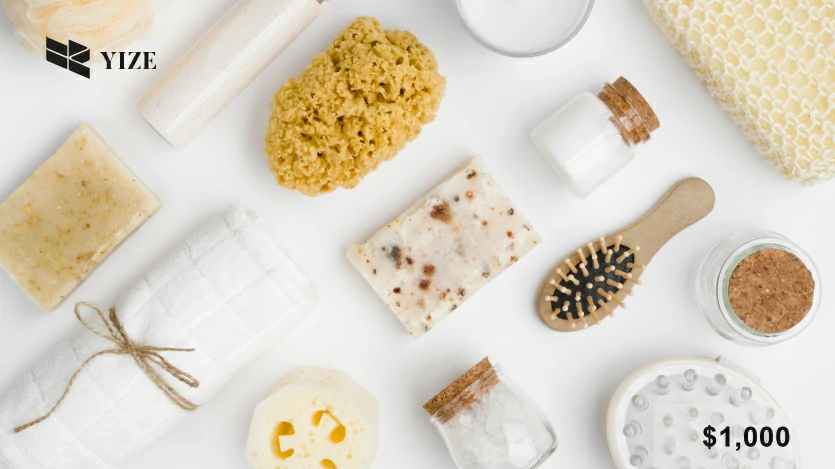
Showerhead Costs
Depending on your previous bathtub, you can reuse the showerheads with your new setup. If you need new showerheads, the costs range from $50 to $1,000.
Shower Installation
The cost of installing a new shower depends on the type of shower you need to install. Some showers need cutting out of the floor to accommodate the shower. Others need a tiled surface. Also, the installation depends on whether you’ll install it or hire a professional.
Factors that Influence the Cost of Tub-to-Shower Conversion
Size
The size of the shower you wish to install determines the cost of your installation. Smaller showers are likely to take less plumbing materials; thus, the cost is less. In the case of a bigger shower, the cost is higher. The case is also true when tiling. It is expensive to tile a bigger shower compared to a smaller one.
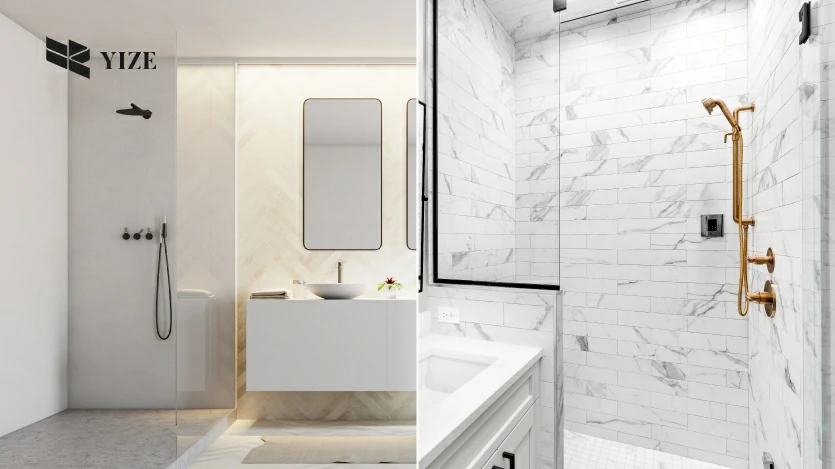
Style
The shower style to be installed is one of the key determinants of the installation cost. Different shower styles need different labor levels during the installation, which dictates the overall cost. Tiled showers need much labor during installation and maintenance. If you choose the tiled shower, expect to pay more. On the other hand, if you choose the manufactured shower stalls, you will likely spend less. Manufactured stalls save the user from the burden of too much labor during the installation.
Materials
In shower constructions, the materials surround everything from installation to maintenance. During the installation, the cost is tied to the cost of the shower material you choose. The project costs vary depending on the shower’s material and the accessories. In the case of tiled showers, the cost varies depending on the type of tiles.
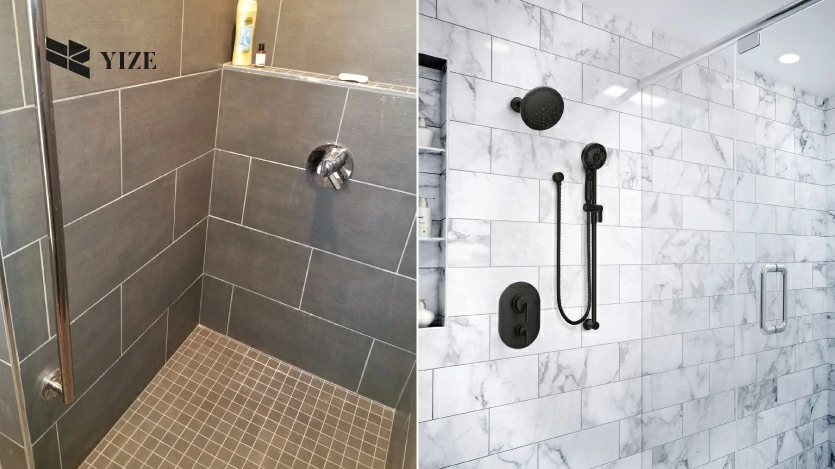
To keep the cost of your tiled shower low, you can go for ceramic tiles, which cost $0.4 to $0.6 per square foot. But, if you want to spend more on tiles, go for marble or porcelain, which costs from $10 to $15 per square foot.
Customization
Different types of showers have different levels of customization. The higher the level of customization, the higher the project cost you’re likely to incur. The type of shower you choose dictates the customization associated with the shower. Tiled showers have the greatest customization, making them one of the most costly. If you choose the tiled showers, expect to pay more for customization.
Location
Geographical location determines how much you pay for the entire process. Those living in urban areas can expect to pay less than those in rural areas. In urban areas, labor is available, and the professionals are flooded; you can expect to pay less. Similarly, purchasing shower equipment in urban areas is cheaper than in rural areas.
DIY vs Hiring a Professional Cost
During the shower installation, you can either take the DIY route or hire a professional to do the job. If you take the DIY route, you may save on cost since many tools are readily available. You’ll only need essential tools and shower equipment. This method of shower installation can be cheaper and cost as little as $1,000 to $2,500. If you choose the DIY route, you can follow these steps:
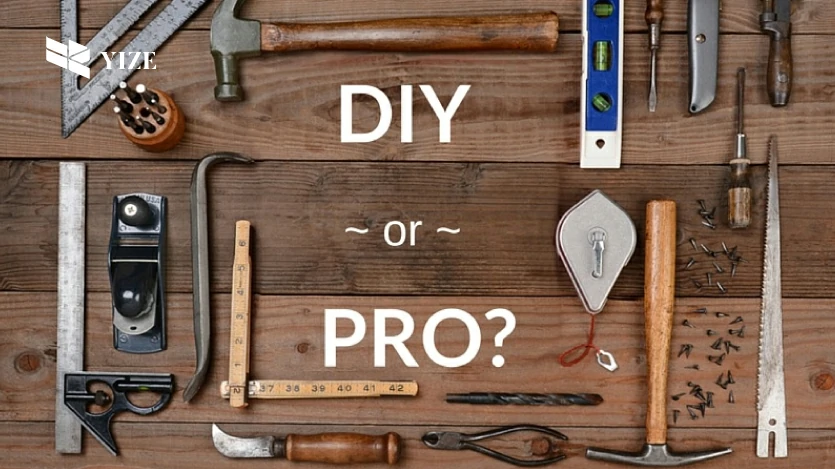
- Remove the old tub unit
- Repair the damaged floor and prepare for the new unit.
- Install the new shower.
- Confirm the shower unit doesn’t leak, and then install other accessories.
- Finally, test the installation and leave it to dry.
Converting a bathtub to a shower is tricky and needs skilled personnel. Thus, you can go the professional hiring route if you are not skilled in installing showers. Or, you may decide to hire a professional to do the job. This route saves you from stress and expensive repairs that are likely to occur. When you take this route, expect to spend up to $1,000 on labor.
Conclusion
Finally, how long a conversion takes depends on the work you’re doing. A simple bathtub-to-shower conversion can take a week or three days. The conversion duration depends on the available tools and labor. You can take as little as a day to do the conversion if the tools and labor are available. This will save you from extra costs.
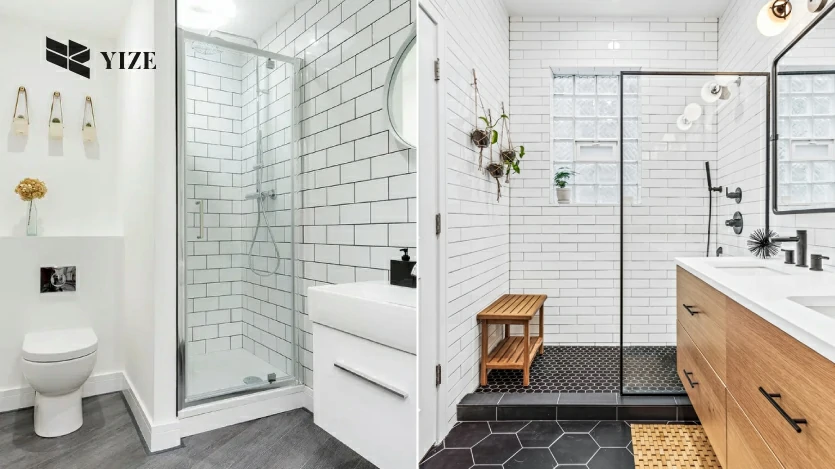
Customized shower installations can take at least two weeks or more. These conversions need extensive tiling and plumbing work, costing up to $8,000. Furthermore, customized installations can save money over time. It reduces water wastage and other plumbing problems that need maintenance.
